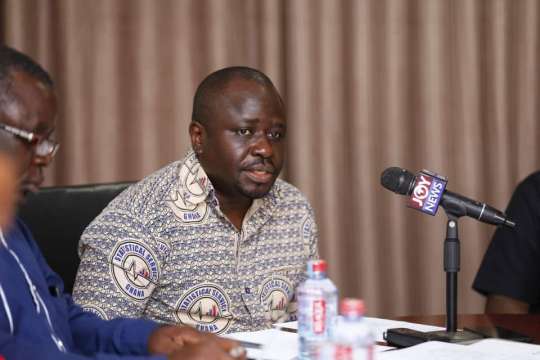The Ghana Statistical Service (GSS) has revealed that it spent ¢6 million in conducting its corruption perception report recently released.
According to the GSS, a component of the expenditure was from United Nations Office on Drugs and Crime (UNODC).
This was revealed by the Government Statistician, Prof Samuel Kobina Annim.
Speaking on the JoyNews’ AM Show on Friday, July 29, they can do the research with ¢5 million on their own.
“In total, we spent about ¢6 million on this survey but obviously this had a component of the expenditure from UNODC side because of the technical support they provided but once we are doing this by ourselves, we think something around ¢5 million will suffice,” he said.
Prof. Annim also said they will engage with the Finance Minister to see how often this research can be done.
“We have already started conversations on that unfortunately the conversations are from our development partners but what are going to do together with CHRAJ is to approach the Minister for Finance to see what government can do in terms of whether every year or every two years.”
The said report by the GSS together with CHRAJ and UNODC ranked the Ghana Police Service as the most corrupt institution in the country.
According to the survey, more than 17.4 million bribes were paid in 2021 with Police officers topping the list of officials who take bribes with 53.2%.
Meanwhile, the Inspector General of the Ghana Police Service, Dr. George Akuffo Dampare in a five-page letter to GSS and CHRAJ on Wednesday, July 27, questioned the methodology used to conduct the survey.
“Our discomfort, therefore, is the use of selective ranking methodology to project the outcomes in a manner that puts an unfair focus on the Police Service with all the others in your corruption index escaping public scrutiny,” the IGP said.
Dr. Akuffo Dampare explained that per the Police’s analysis of the report, the research could have been influenced by “a historically pervasive stereotyping of the Police Service.”
“The Service has almost now become the default institution of choice for such research and has therefore encouraged a deep-seated public stereotype over the years.”
Latest Stories
-
Dr Nduom hopeful defunct GN bank will be restored under Mahama administration
25 minutes -
Bridget Bonnie celebrates NDC Victory, champions hope for women and youth
32 minutes -
Shamima Muslim urges youth to lead Ghana’s renewal at 18Plus4NDC anniversary
2 hours -
Akufo-Addo condemns post-election violence, blames NDC
2 hours -
DAMC, Free Food Company, to distribute 10,000 packs of food to street kids
3 hours -
Kwame Boafo Akuffo: Court ruling on re-collation flawed
3 hours -
Samuel Yaw Adusei: The strategist behind NDC’s electoral security in Ashanti region
3 hours -
I’m confident posterity will judge my performance well – Akufo-Addo
4 hours -
Syria’s minorities seek security as country charts new future
4 hours -
Prof. Nana Aba Appiah Amfo re-appointed as Vice-Chancellor of the University of Ghana
4 hours -
German police probe market attack security and warnings
4 hours -
Grief and anger in Magdeburg after Christmas market attack
4 hours -
Baltasar Coin becomes first Ghanaian meme coin to hit DEX Screener at $100K market cap
5 hours -
EC blames re-collation of disputed results on widespread lawlessness by party supporters
5 hours -
Top 20 Ghanaian songs released in 2024
6 hours

